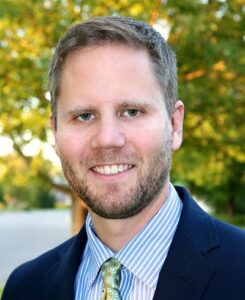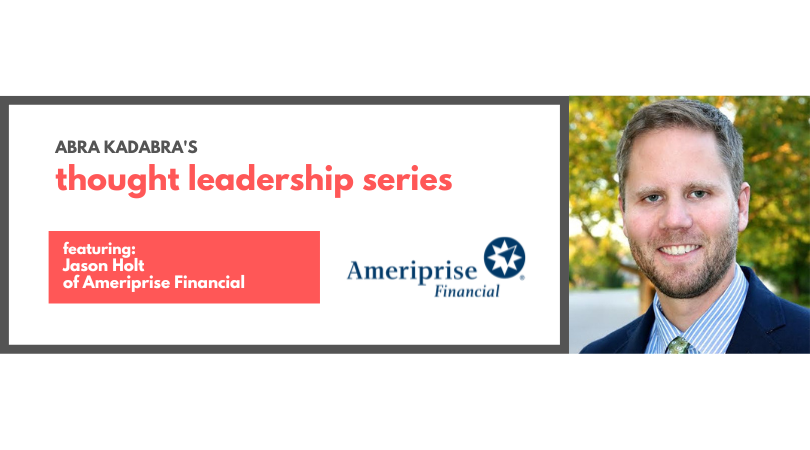Jason Holt’s fascination with finance started at an early age.
“Growing up, I was the kid who would see change on the ground and I’d be down there picking it up,” he said with a laugh. “My parents told me I always had a good eye for spotting money.”
 As Holt got older, his interest in finance grew even deeper. After graduating from St. Cloud University, he went to work as a personal banker and when he was setting up his first 401(k), he discovered a true passion for investments and was eager to learn more about how they worked.
As Holt got older, his interest in finance grew even deeper. After graduating from St. Cloud University, he went to work as a personal banker and when he was setting up his first 401(k), he discovered a true passion for investments and was eager to learn more about how they worked.
“I didn’t really know what I was doing at the time,” he said. “I just knew I really liked it.”
Through his employer, Holt participated in a program that allowed him to earn the licenses he needed to become a financial advisor. And now, after 16 years in the field, he couldn’t be happier with the career path he’s chosen.
“I really enjoy helping people retire and get to the next level,” said Holt, who is the vice president at Wayzata-based Ameriprise Financial Services and also serves on the Mound City Council. “It’s incredibly rewarding to see the people I’ve been working with from the beginning are still going strong.”
If you’ve been thinking about working with a financial advisor – or even if you already are – here are a few of Holt’s thoughts and suggestions for making the most of the relationship:
- Just do it: Talking about finances makes many people uncomfortable because they simply don’t understand them, but by failing to plan, you’re putting yourself – and your family – at risk. For that reason (and many more) Holt encourages people to sit down and meet with an advisor so they can get the ball rolling sooner rather than later. “It’s not a big scary process,” he said. “And once people do it and get a plan in place, they feel a lot more confident than they would have if they were just saving money and crossing their fingers hoping it all works out and they’ll be able to retire one day.”
- Get a second opinion: Just like you would with a doctor regarding your physical well being, it’s OK to get a second opinion from another advisor to ensure you’re on track for a healthy financial future. This can be beneficial in several ways. First, it can build your confidence in what you’re already doing. Second, it can provide you with a different perspective. Third, it may help you realize that your needs could be better served by working with someone else. “You want to find someone you jive with,” Holt said. “After all, this is the person who’s going to be handling your money. You want to make sure you get along with them.”
- Be vigilant: Once you’ve got your plans in place, it can be tempting to go on autopilot and assume everything will pan out in the end. However, constant changes in the economy due to things like politics and the pandemic mean that the investment choices you once made may not be right for you now. For example, Holt often works with clients who set up their 401(k) plans many years ago and never reviewed a single one of their statements. “I’ll look at their accounts and see that they’re in a stable value fund that hasn’t done anything in forever, or they’re in some crazy aggressive fund that they shouldn’t be in and next year is retirement,” he said. On the flip side, Holt has clients who closely monitor the market and feel panicked when they see any volatility. In those cases, he’s there to prevent them from making any drastic changes based on their emotions in the moment. Both of these scenarios underscore not only the importance of having an advisor like Holt on your side but also making sure you communicate with them regularly. “Don’t be afraid to talk to your advisor,” he said. “That’s what we’re here for – to keep you on track.”
Abra Kadabra Environmental Services is proud to share the wisdom of business owners from our community through our thought leadership series. If you’d like to be featured, click here.

